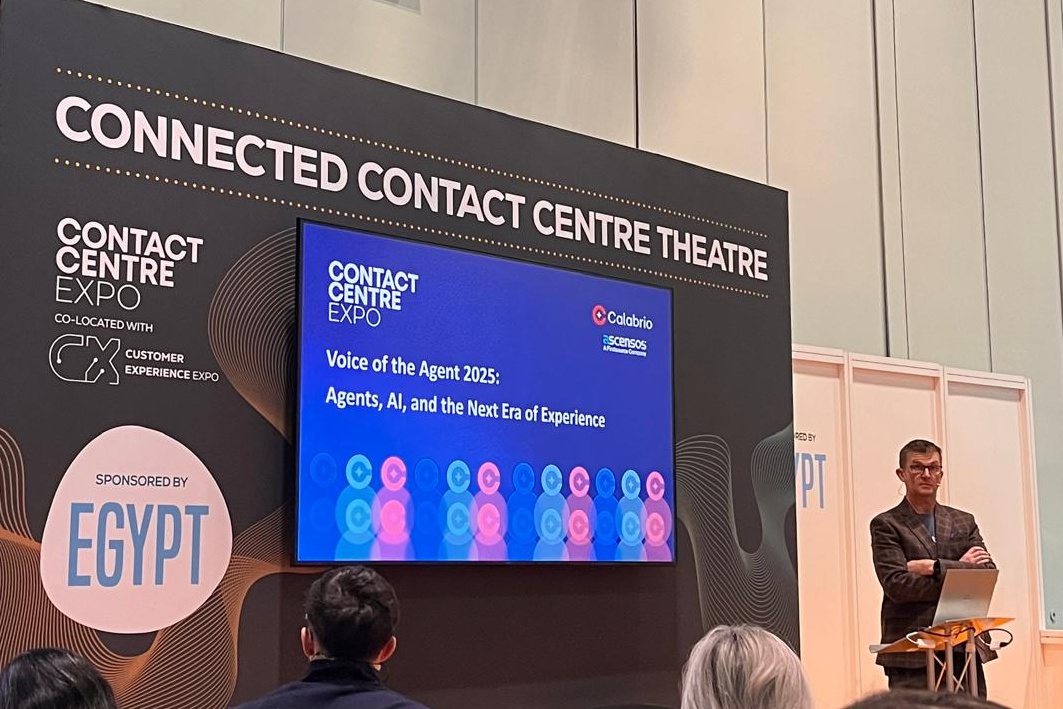November 24, 2025
Calabrio: Agents Are Carrying More Than Ever, Leaders Need to Step Up

The pressure on contact centre teams has grown significantly in recent years. Customer issues are more complex, expectations are higher, and AI is transforming day-to-day work faster than many organisations can support. This context framed Calabrio’s session at the Contact Centre Expo 2025, where the company presented new research on how agents are coping and where the biggest gaps still sit.
Ed Creasey, Director of Pre-Sales Consulting and Engineering at Calabrio, opened the session by pointing out the central role managers continue to play in agent experience. He reminded the audience that support from managers continues to shape an agent’s commitment to their role. As he put it, “the desire for a supportive manager was one of the key reasons that agents chose the career in the first place.”
Team Leaders and Employee Retention
While agents today report high levels of satisfaction and pride in their work, a third remain uncertain about whether they want a long-term career in the industry.
According to Calabrio’s research, more than 40% say they don’t know what progression pathways exist in their organisation, and over half lack a formal development plan. Creasey said this places team leaders at the centre of long-term retention: their influence is immediate, tangible, and deeply felt.
The findings also revealed growing pressure around workload and scheduling. Stress emerged as the number-one factor prompting agents to consider leaving their roles, surpassing pay. Despite workforce management tools being widely available, only half of agents say they have any influence over their schedules. Creasey emphasised that self-scheduling technologies have existed for more than a decade, yet remain underused at precisely the moment when agents need them most.
Another major theme was empathy — but as a disciplined capability organisations must intentionally develop. Leaders identified empathy and emotional intelligence as the top gap in agent performance, yet 64% admitted they aren’t prioritising training in these areas. This disconnect, Creasey warned, is becoming more visible as AI takes over routine tasks and leaves humans with what he called “the complicated, emotional customers.”
On AI, agent sentiment was mixed but forward-leaning. More than 50% want more AI in their workflows, even as “55% fear AI could replace their jobs.” Creasey argued that the real issue isn’t AI itself but the lack of education around it. Adoption is happening faster than understanding, creating preventable anxiety.
Creasey concluded by saying: “Invest in education, use the tools you already have to reduce stress, and design modern career paths shaped by AI, not threatened by it.”




